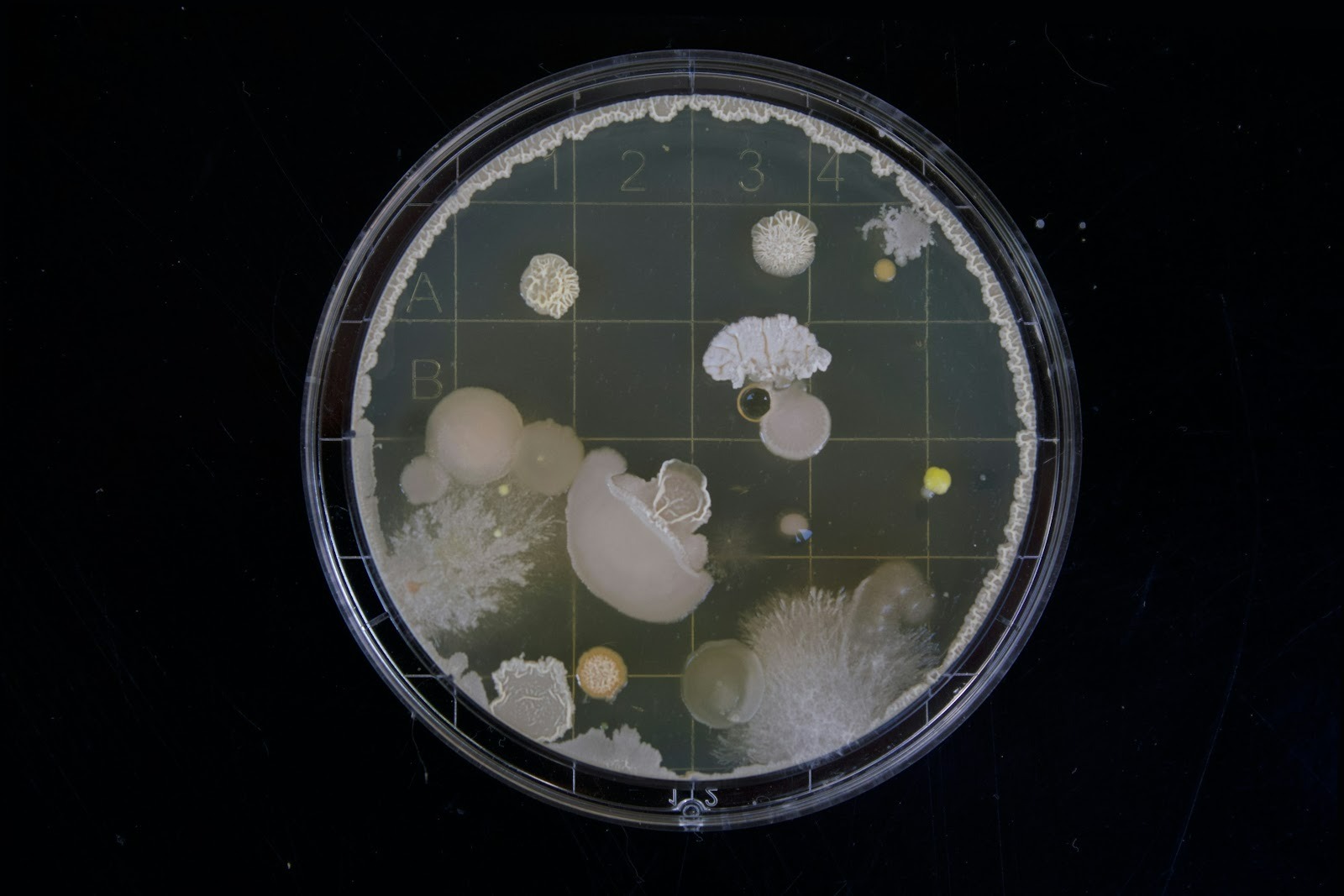What is the Skin Microbiome & Why Is It Important?
The skin is the largest organ of the human body, serving as a crucial barrier between our internal systems and the external environment. The human...
6 min read
 Manoj Dadlani
:
Nov 4, 2025 6:02:42 AM
Manoj Dadlani
:
Nov 4, 2025 6:02:42 AM
.webp)
The gut microbiome, an intricate ecosystem of trillions of microorganisms living throughout the human gastrointestinal tract, plays a crucial role in maintaining overall human health. These diverse microbial communities, collectively known as the human gut microbiota, form an essential interface between diet, host metabolism, and immunity. Advances in microbiome research continue to reveal how this remarkable system influences digestion, disease susceptibility, and even mental well-being through the gut-brain axis.
Through modern microbiome sequencing and next generation sequencing technologies, researchers can now explore the human gut microbiome composition in unprecedented detail, bridging the gap between genetic potential and physiological outcomes.
Explore Human Health Gut Microbiome Research with Cmbio
Cmbio stands at the forefront of this scientific revolution, offering specialized solutions in gut nutrition sequencing and microbiome characterization. Using techniques such as 16S rRNA amplicon sequencing, shotgun metagenomic sequencing, and whole genome shotgun sequencing, Cmbio delivers highly accurate sequencing data for researchers and clinical partners. Its advanced bioinformatic analysis, data analysis, and analysis pipeline services transform raw sequenced data into meaningful insights.
By supporting studies across diverse human populations, Cmbio empowers teams to measure microbial diversity, monitor microbiota composition changes, and uncover correlations between gut microbiome variation, nutrition, and disease. Whether investigating colorectal cancer, inflammatory bowel disease, or dietary effects such as how bread affects clinical parameters, Cmbio’s integrated approach ensures reliable and reproducible findings.
The human gut houses an ecosystem rich in microbial genomes from bacteria, archaea, viruses, and fungi. This community includes major bacterial phyla such as Firmicutes, Bacteroidetes, Actinobacteria, and Proteobacteria, forming the core gut microbiome. These organisms collectively shape digestion, lipid metabolism, and bile acid metabolism while strengthening the immune system.
The baseline intestinal microbiota composition evolves throughout life, from infancy to adulthood. Environmental exposure, geography, and dietary habits all shape gut microbiota composition, influencing the long-term microbial ecology of individuals. A balanced and healthy microbiome supports digestion, nutrient absorption, and immune defense, whereas an altered gut microbiota can contribute to chronic inflammation, obesity, or metabolic dysfunction.
The interplay between the human gut microbiome and its host involves multiple levels of communication: neural, hormonal, and immune. Through the intestinal microbiota, metabolites travel via the bloodstream, influencing distant organs, including the brain.
Key aspects of these interactions include:
A healthy gut microbial community enhances insulin sensitivity, reduces intestinal permeability, and limits systemic inflammation, offering protection from irritable bowel syndrome, allergies, and related disorders.
Metabolites produced by gut microbes shape host health through various biochemical mechanisms:
Together, these bioactive compounds help regulate gut health, energy metabolism, and immune function.
An individual’s diet profoundly influences microbial composition and microbial communities. Nutritional strategies aimed at supporting gut health include dietary changes, functional foods, and personalized nutrition models.
Consuming diverse dietary fibers enhances microbial diversity, fostering the growth of beneficial gut microbiota. Microbiota-accessible carbohydrates and resistant starches fuel bacterial fermentation, increasing SCFA production. High-fiber diets are linked to reduced risk of colorectal cancer, type 2 diabetes, and inflammatory bowel disease.
The quality and type of macronutrients affect microbial profiles:
Variation in human gut microbiota among individuals leads to different responses to identical foods. Machine learning models integrating gut microbiome data and microbiome samples are paving the way for precision nutrition, allowing dietary plans to be personalized based on microbial profiles to improve human health.
Functional foods such as yogurt, kefir, and fermented vegetables provide living bacteria that enhance the intestinal microbiota. Polyphenols and bioactive compounds in fruits and vegetables interact with human microbiomes, improving metabolic and inflammatory responses. These ingredients are metabolized by the gut microbiota, enhancing nutrient absorption and biological activity.
Research on processed foods indicates that industrial diets often reduce microbial diversity. Thus, emerging nutraceuticals aim to restore microbial balance and maintain gut health through targeted formulation of probiotics and prebiotics.
Traditional probiotics, mainly Lactobacillus and Bifidobacterium species, offer general benefits but limited disease-specific action. Next-generation probiotics (NGPs), such as Akkermansia muciniphila and Faecalibacterium prausnitzii, promise targeted therapeutic potential for inflammatory bowel disease, obesity, and neurological disorders.
|
Feature |
Traditional Probiotics |
Next-Generation Probiotics |
|
Main Strains |
Lactobacillus, Bifidobacterium |
Akkermansia, Faecalibacterium, Bacteroides |
|
Mechanisms |
General gut balance |
Targeted disease intervention |
|
Applications |
Digestive support |
Metabolic, immune, and neurological therapies |
|
Research Basis |
Historical clinical use |
Based on microbiome sequencing and microbiome characterization |
|
Innovation Tool |
Fermentation |
Metagenomic sequencing, amplicon sequencing |
NGPs utilize engineering and genetic modification to deliver precision therapies that improve intestinal microbiota and correct microbial imbalance.
Cutting-edge microbiome research employs CRISPR-Cas and recombinant DNA techniques for probiotic design. By directly manipulating microbial genomes, developers can create probiotics that secrete therapeutic molecules or modulate immune function. These biosystems depend on rigorous microbial community analysis, taxonomic profiling, and operational taxonomic units (OTU) identification to ensure specificity and safety.
Challenges remain in regulatory compliance, biocontainment, and long-term impacts of genetic modification within the human gut microbiome.
Clinical evaluation through Phase I–III trials validates probiotic safety, dosing, and efficacy. Microbiome sequencing technologies guide researchers in correlating microbial shifts with therapeutic outcomes, identifying biomarkers linked to diseases such as colorectal cancer, irritable bowel syndrome, and inflammatory bowel diseases.
Cmbio supports these studies by offering standardized sample collection, DNA isolation, and nucleic acids extraction protocols to ensure reliability across microbiome samples.
Therapeutic strategies for modulating the microbiome include:

Non-invasive diagnostic tests using microbiome sequencing and metagenomic sequencing now identify microbial biomarkers for early disease detection. Insights drawn from human gut microbiome data enable prediction of patient response to therapies and guide precision medicine applications.
Integration of gut microbiota composition data into clinical platforms allows physicians to tailor interventions, enhancing treatment outcomes for chronic diseases such as irritable bowel syndrome or metabolic syndromes.
Special groups, such as infants, the elderly, and immunocompromised patients, require specific attention in microbiome research. Variations in early baseline intestinal microbiota composition or antibiotic exposure can significantly affect human gut microbiota development. Research employing rrna amplicon sequencing and internal transcribed spacer analysis helps monitor these shifts to design age-appropriate interventions safely.
Growing evidence strengthens the link between the human microbiome and disease prevention. By combining modern sequencing techniques, effective data analysis, and integrative research approaches, scientists and clinicians can rapidly translate microbiome research discoveries into personalized healthcare solutions.
Key insights include:
As scientific understanding expands, the human body is seen not as a solitary organism but as a superorganism, an intricate partnership with its microbial communities. The ability to improve human health now depends on harnessing this partnership through precision microbiome sequencing and advanced bioinformatic analysis.
Cmbio offers a comprehensive suite of multi-omics services designed for researchers and professionals focused on gut health. Our expertise includes:
Our services help identify patterns in gut microbiota composition that influence human health, allowing for the development of next-gen diagnostics, treatments, and nutrition strategies tailored to individuals.
Explore our full Gut Microbiome Research services or contact us to discuss your project needs.
Gut microbes are the trillions of microscopic organisms, including bacteria, archaea, fungi, and viruses, that inhabit the human gut. They play essential roles in digestion, metabolism, and immune function. Together, they form part of the core gut microbiome, which maintains the balance of the digestive ecosystem. A disruption in these microbial populations can lead to inflammation, digestive issues, or chronic disease. Understanding gut microbes helps researchers design precision therapies and dietary interventions to support long-term gut health.
DNA sequencing enables scientists to decode the genetic material of microorganisms in the gut, facilitating precise identification of bacterial species and their functions. Techniques such as next generation sequencing and metagenomic sequencing provide deep insights into microbial diversity, metabolic pathways, and gene transfer mechanisms. These tools are central to gut microbiome research, revealing connections between microbial activity, disease risk, and treatment outcomes across populations and environments.
The core gut microbiome includes the most stable and functionally key microbial species that are shared among most individuals. These species support nutrient metabolism, produce short chain fatty acids, and regulate immune response. By examining this stable microbial foundation through advanced DNA sequencing and comparative microbiome research, scientists can better understand how personalized nutrition and probiotics influence long-term human health and disease prevention.

The skin is the largest organ of the human body, serving as a crucial barrier between our internal systems and the external environment. The human...
.webp)
The human microbiome is a complex ecosystem of microorganisms residing in and on the human body, playing a pivotal role in human health and disease....

Celiac Disease, an autoimmune intestinal disorder affecting an estimated1%of the population, is characterized by the body’s inappropriate response...